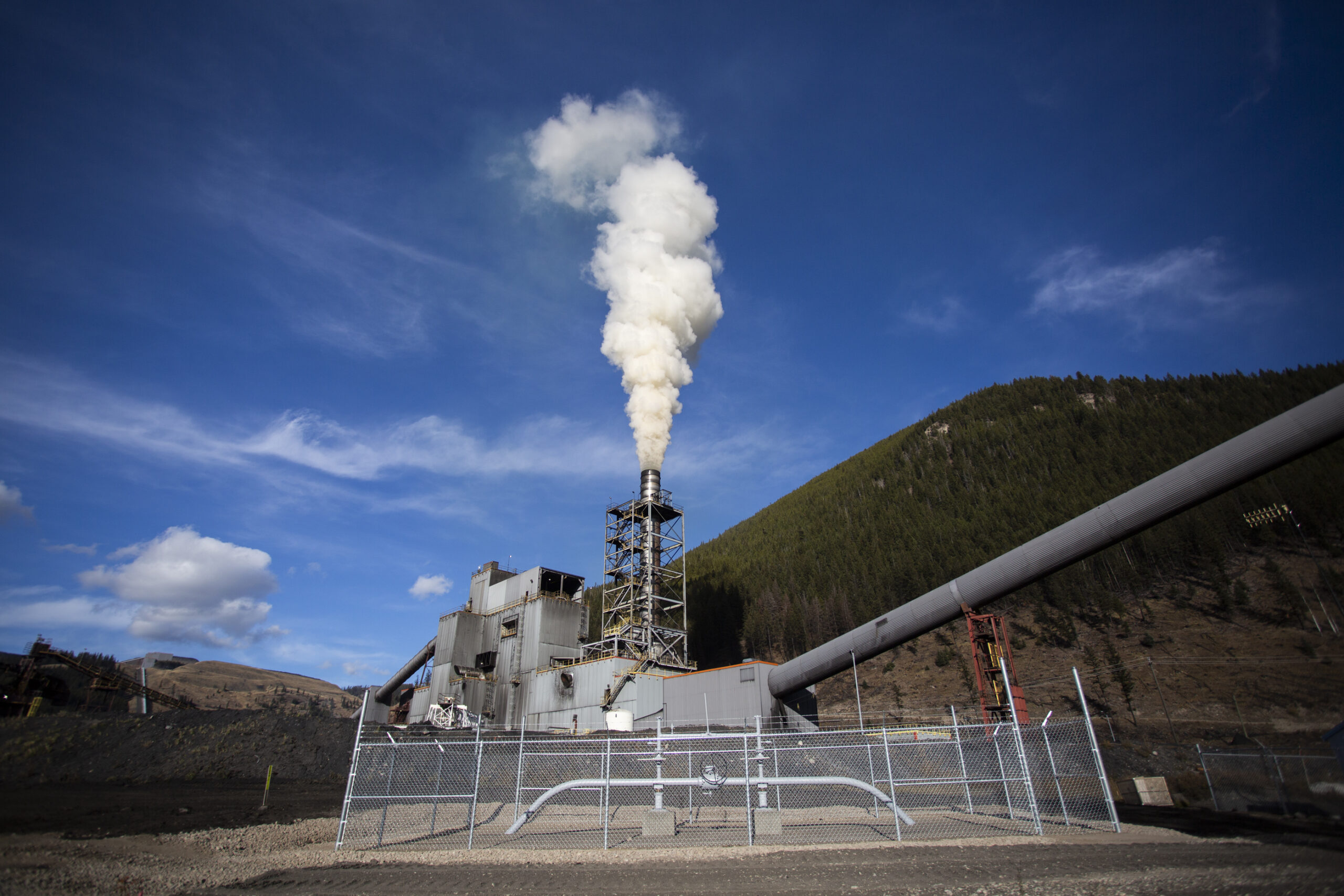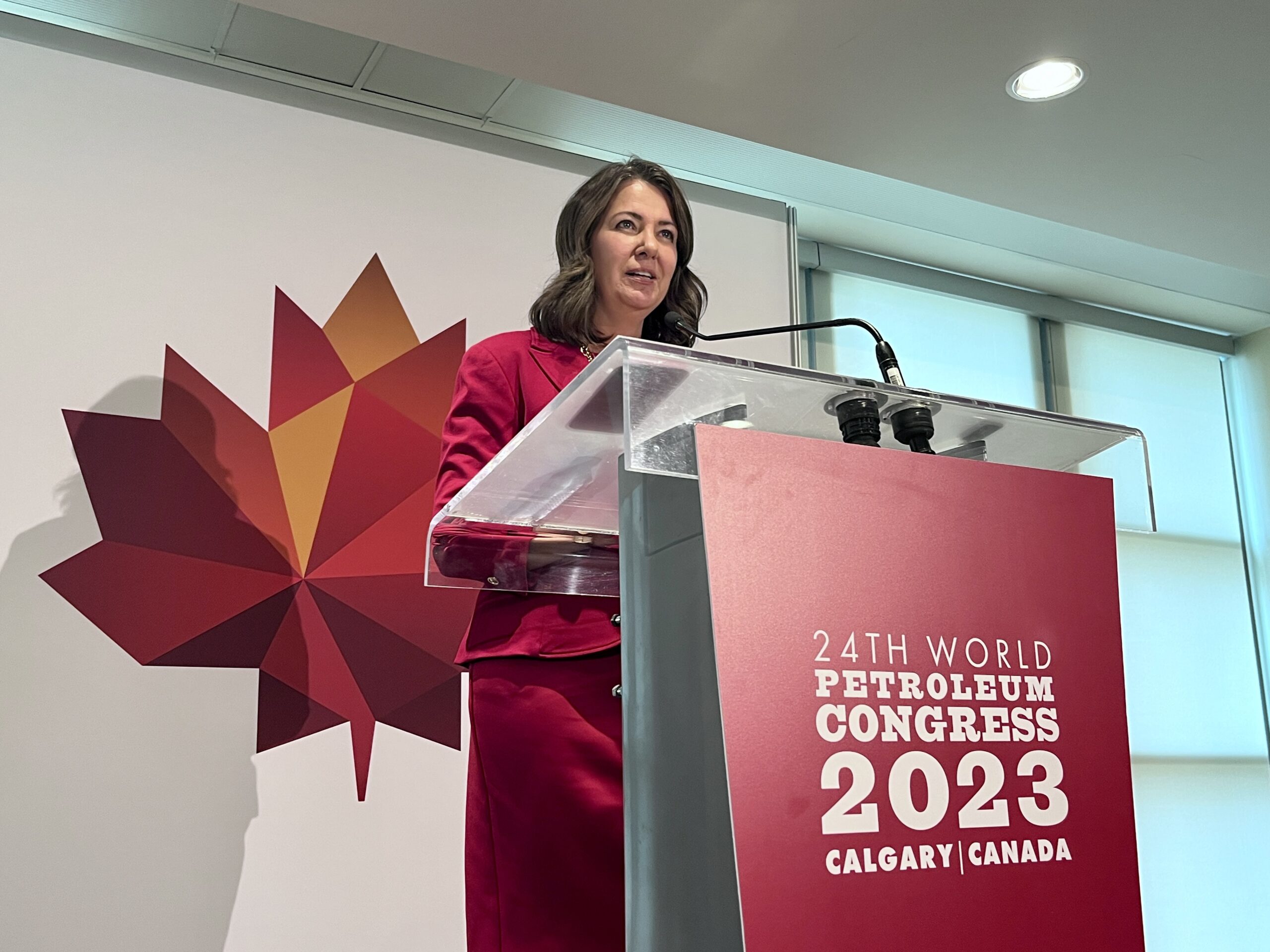
Down a video rabbit hole (but the good kind)
The Narwhal is expanding its reach on video platforms like YouTube and TikTok. First up?...
The transition from 2024 to 2025 was bookended by moves from the Alberta government that will have lasting and potentially significant impacts on the province for decades to come.
Dramatic, no?
While people (me) were disconnecting from the world around them and learning valuable lessons about the non-lethal but still painful impacts of newer-model Nerf guns, the government welcomed back coal mines and vowed to double oil production.
There was also some courting of a certain U.S. president-elect who has once again easily yanked the leash of every politician and journalist across at least three continents.
So, what was happening while you (me) were sleeping in? I’m glad you asked.
On the Friday before Christmas, when so many (me) were all-but tuned out already, the United Conservative government once again opened the Rocky Mountains to coal mines.
Or, as the government put it: “Protecting the environment with tougher coal rules.” You can’t make this up.
Coal + stockings + Christmas. The branch was just too low on this one.
The move was similar to the first attempt at reintroducing coal mining to the area under former premier Jason Kenney in 2020. He too made the announcement on a Friday — before a long weekend.
That caught the ire of, uh, then-former politician Brian Jean, who wrote at the time that you “don’t put out notice of a policy change after-hours on the Friday of a long weekend. That looks shady.”
Jean seems to have changed his opinion on what is and isn’t shady — as the current energy minister, he said on the Friday before Christmas that the government will allow for coal mining, which will not include open-pit operations unless those projects are already somewhat, sort of, underway. Case in point: the Grassy Mountain mine, which the government insisted the Alberta Energy Regulator consider despite the fact it was already rejected by that regulator.
The mines would be located on the headwaters for, well, the Prairies. The government insists it would protect water from selenium contamination from any mine, but it is decidedly unclear how. During a technical briefing prior to the government’s announcement, an official could not, or would not, answer The Narwhal’s question about the need to rewrite the rules on water use on the eastern slopes in order to feed the mines.

The government said the new policy for allowing mines should be in place before the end of the year and that it would engage in consultations … with mining companies.
It’s unclear why the government is pushing so hard for the industry.
According to, uh, 2020 Brian Jean, the “royalties Albertans get from coal are minuscule.”
“Alberta collects about one per cent of coal revenue, less than $100 per coal railcar; that must be weighed against the significant environmental risk and the potentially more severe reputational risk,” wrote old Brian Jean.
Watch for reaction from ranchers, First Nations, latte-sipping urbanites and Albertans who drink water, as well as proponents, many of whom say rural areas need the job opportunities more coal would bring.
On the fresh side of the yearly divide, the province said it wants to take an active role in doubling oil production by partnering with Enbridge to increase pipeline capacity to the U.S.
Current exports are approximately 4.3 million barrels per day.
The announcement calls for a joint working group between Enbridge and the government’s Alberta Petroleum Marketing Commission, and is heavy on jargon and light on specifics, promising to “cut red tape and streamline regulations and permitting approvals.”
The government wants to look at ways to ease the expansion of the company’s existing network. The working group will also “assess opportunities for shared investment and benefit to both Albertans and Enbridge by leveraging Bitumen-Royalty-In-Kind barrels.” (Translation: we promise to ship our own barrels of oil through your pipelines.)

The move is part of a wider push by Danielle Smith’s government to woo the incoming U.S. administration and pinky swear that we’ll do whatever it takes to ensure Americans keep buying our oil and gas. The premier has been making the rounds, repeatedly, on Fox News and will be attending the inauguration later this month.
It’s also part of a wider push to get all up in the business of business — from threats to manage who can visit oil and gas facilities and control emissions data to buying and selling more oil.
Watch for promises of eased regulations and the potential for government investments in the market reminiscent of former-premier Kenney’s $1.3-billion loss from backstopping the doomed Keystone XL pipeline.
In a related move, the province said it’s the “last chance” for the federal government to kill its proposed emissions cap on the oil and gas sector. Details on when that ultimatum clock stops are unclear.
Environment Minister Rebecca Schultz, who makes mostly pro-fossil fuel announcements, said the government plans to launch legal action against the regulations if they ever move beyond drafts. So I think actually we’re at the second-last chance?
As the government pushes to expand oil and gas production, resist emissions caps and continue its fight against renewable electricity generation, it’s been revealed the provincial regulator might be just a little off on its supervising.
An analysis by ecologist Kevin Timoney shows the Alberta Energy Regulator can’t back up its claims around tailings pond cleanups. It says the regulator grossly underreported the volumes that have been spilled and hid the fact there have been almost twice as many spills as publicly reported. The figures are from freedom of information requests.
Oh, and the government is severely restricting access to information later this year. Probably unrelated.
Get the inside scoop on The Narwhal’s environment and climate reporting by signing up for our free newsletter. On March 17, federal Conservative Leader Pierre Poilievre...
Continue reading
The Narwhal is expanding its reach on video platforms like YouTube and TikTok. First up?...

Locals in the small community of Arborg worry a new Indigenous-led protected area plan would...

Conservative Leader Pierre Poilievre says he’ll fast-track approvals and scrap key rules that protect the...
